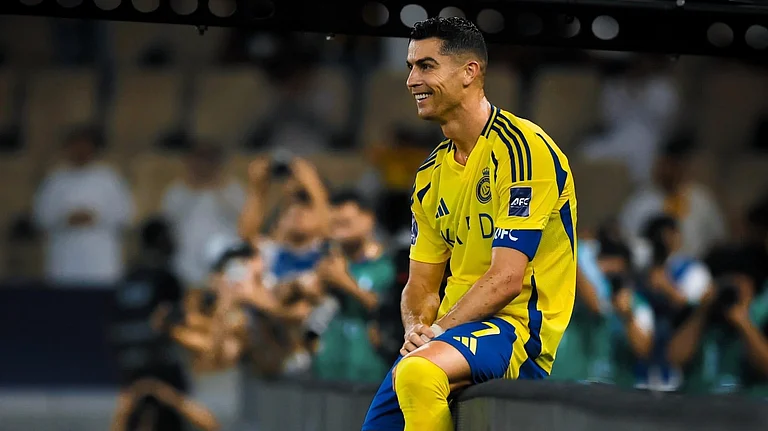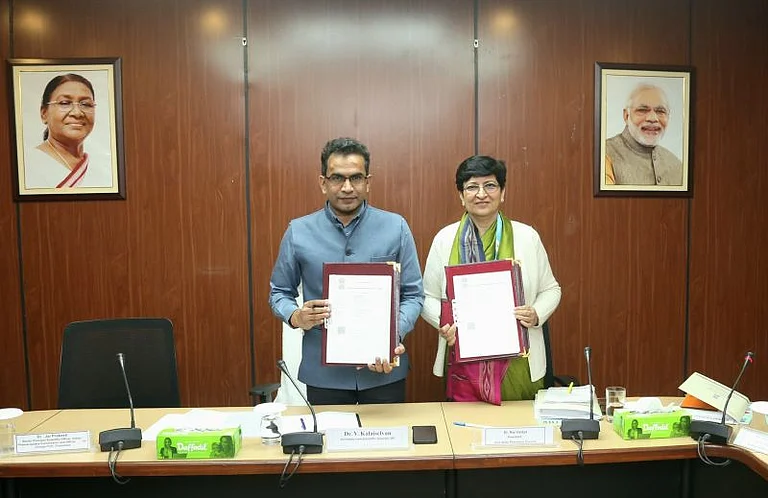The ice in the Kashmir valley hasnt quite melted yet, but it does seem to show some signs of thawing. Even as some Hurriyat Conference leaders, who were set free after having been lodged in the infamous Jodhpur jail for over six months under the Public Safety Act (PSA), maintain that they stand for tripartite talks for arriving at some amicable resolution to the Kashmir tangle, they have not totally rejected the Union governments offer of sitting across the table to discuss the Kashmir issue.
While the APHC chairman, Syed Ali Shah Geelani, and another senior leader, Abdul Ghani Lone, have reiterated their old stand that Pakistan, as a principal party to the Kashmir dispute, must be included in any attempt to find a solution, theyve also made it clear that they were not opposed to a dialogue with New Delhi provided the same was without any preconditions and was based on sincerity and honesty. "We are yet to receive a formal invitation (for talks) from the Indian government, and if and when we receive it, the Hurriyat central committee will discuss the issue and take a decision," says Geelani. He was commenting on press reports in the wake of home minister L.K. Advanis recent statement regarding the possibility of a dialogue between New Delhi and the Hurriyat.
New Delhi has made it clear that the decision to free the Hurriyat leaders and other party activists-taken into custody immediately after the last Lok Sabha elections in Kashmir-was taken to create an atmosphere conducive for a peaceful dialogue. However the manner in which the issue of their release was dealt with has provoked many questions, notably one that points to a possible difference of opinion between the state and central government.
CM Farooq Abdullah in the recent past had ruled out the early release of Hurriyat leaders. In fact, last year, he publicly announced that hed make them "rot in Jodhpur jail for three long years". Insiders here say that it was US pressure, and the resultant directive from New Delhi, that virtually forced Farooq to order the release of the jailed leaders. However, even then the release did not come in one go. Three top leaders, Syed Geelani, party spokesman Prof Abdul Ghani Bhat and Shia leader Moulvi Abbas Ansari were first released. No reason was offered as to why Yasin Malik and three others werent released too. A much-piqued Farooq, perhaps fearing a meeting between the Hurriyat leaders and New Delhi, even told the state assembly that he would resign if talks were held outside the Constitution.
Reliable sources claim the NC wants the present stalemate to continue. Otherwise, they say, political sobriety demanded that the NC should have welcomed the move and offered to play an honest referee. The role Farooq shouldve played, they point out, is something similar to what was expressed by journalist M.J. Akbar, in a recent TV programme. Replying to a question on Farooqs role in the proposed negotiations, Akbar said, "It has to be the same as played by Syed Mir Qasim during the Centre-Plebiscite Front negotiations in 75, before Sheikh Abdullah returned to power."
In any case, it isnt New Delhi alone thats keen on the talks. The West, particularly the US and UK, is also closely monitoring developments. President Clinton, during an interview in New Delhi on his recent visit, had said that the "Government of India must start a process of talks with its own part of Kashmir, with the peoples representatives". That, claim sources, shouldve been a signal for everyone concerned, particularly as the Hurriyat leaders were released soon after Clintons visit.
Many claim the "insurmountable difficulties"-such as the question whether talks are to be held within Indias Constitution or even the written invitation being insisted upon by the Hurriyat-will soon be overcome. The Hurriyat may get a written letter, as will the NC, Congress, Awami National Conference, Shabir Shah and all others concerned. Its also learnt that the Centre would make it clear that they want to discuss the problem with all parties concerned and not with the APHC alone. Four key negotiators from the Centre are already at work on the nitty-gritty, claim sources. That fact, whatever the final result of the talks, is enough indication that New Delhi is keen to break the ice-whether Farooq likes it or not.


























